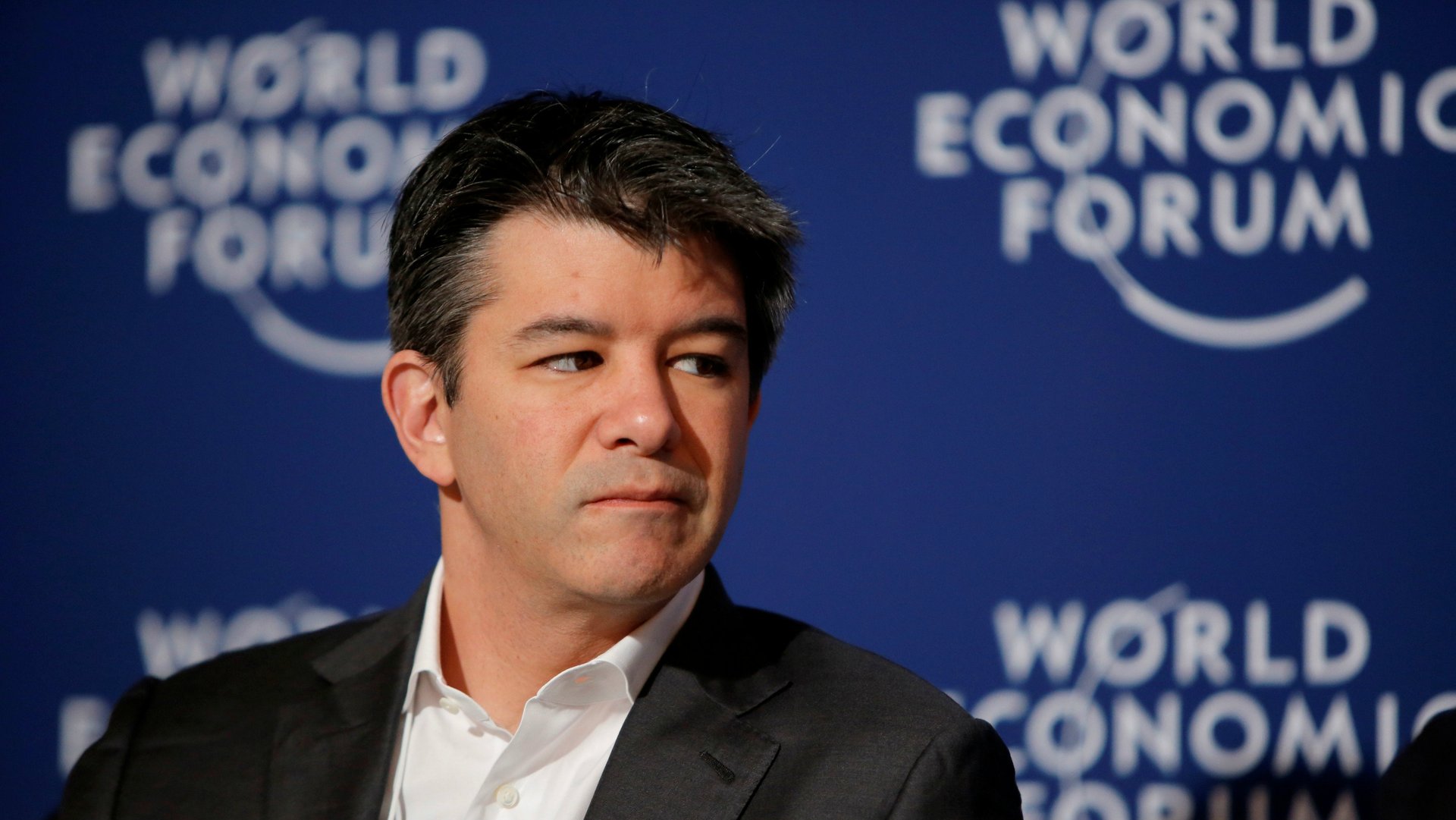Uber is one step closer to a massive investment from SoftBank, and that’s bad for Travis Kalanick
A deal between Uber and SoftBank is nearly done.


A deal between Uber and SoftBank is nearly done.
Today (Oct. 4) Uber announced in a statement it would move forward with a proposed investment from Japanese tech giant SoftBank which could close “in the coming weeks,” and also voted in favor of a number of corporate governance reforms. The decisions bode poorly for Uber founder Travis Kalanick, who has sought to retain his influence over the company after stepping down as CEO in June, and could pave the way for broader changes in Uber’s international operations.
SoftBank, which said in August it’s interested in investing in Uber, hasn’t made public the size of its proposed investment, but a person with knowledge of the deal said that SoftBank, along with other investors, will invest $1.25 billion directly in Uber at a $69 billion valuation, and will also purchase 14% to 17% of outstanding shares from existing investors. The person also added that Uber will go public by 2019, something which Uber’s new CEO hinted at in August.
The governance changes, according to the person, will expand Uber’s board from 11 seats to 17 seats, with two spots for representatives from SoftBank. More importantly, the board agreed to strip “super-voting” rights of certain investors that held multiple votes per share, and institute a new “one share, one vote” standard for all investors. Kalanick and several other early employees maintained outsized voting rights compared to the number of shares they owned, and he also controlled three board seats.
Even with the appointment of Dara Khosrowshahi as Uber’s new CEO, those privileges ensured that Kalanick could retain influence at Uber behind the scenes. One of the most vocal proponents of curtailing Kalanick’s influence was Benchmark Capital, one of Uber’s earliest and highest-profile investors. In August, the venture-capital firm filed a lawsuit against Kalanick alleging he concealed “his gross mismanagement and other misconduct at Uber,” and argued he “fraudulently” acquired his current board seat as a means to maintain his power. At the time, a spokesperson for Kalanick called the lawsuit “completely without merit.”
Last week, Kalanick appointed two new members to Uber’s board, former Xerox CEO Ursula Burns and former CIT Group CEO John Thain, a move that Khosrowshahi called “disappointing” and “highly unusual” as Kalanick didn’t inform anyone of the move.
SoftBank’s investment is about more than money—it’s a vehicle for pushing Kalanick aside. According to Bloomberg, Benchmark encouraged SoftBank to agree to limit Kalanick’s voting power as part of the terms of its investment. SoftBank denied these efforts in a statement. According to the person with knowledge of the deal, Benchmark will drop its lawsuit against Kalanick if the SoftBank deal goes through.
Stripping Kalanick of his influence at Uber might seem insignificant given the company’s size, but Kalanick was a key part of what made Uber the giant it is today. The same brashness that convinced hundreds of municipal governments to accept Uber as an alternative to taxis also led the company to face a lawsuit over alleged IP theft, a criminal probe over alleged privacy violations, and a public backlash for a culture that reportedly enabled sexual harassment.
Uber is already being tested as it carries on without Kalanick. Last month, London’s transport authority rejected Uber’s application for a license renewal. Uber has appealed the decision and is allowed to continue doing business until that process concludes. Khosrowshahi responded to the rejection with an apology—marking a stark contrast to Kalanick’s confrontational style.
The SoftBank investment could also pave the way for Uber to retreat from India and Southeast Asia, two markets where it’s up against tough competition from local rivals, Bangalore-based Ola and Singapore-based Grab. Both of those companies are also backed by SoftBank—it’s possible that once SoftBank is invested in all three companies, it could orchestrate a merger between Uber and its rivals. That could help slow down the rate at which Uber burns its cash, much like last year’s merger with Chinese rival Didi (which SoftBank also backs). But it would lengthen the list of lost battles for the company Kalanick created.